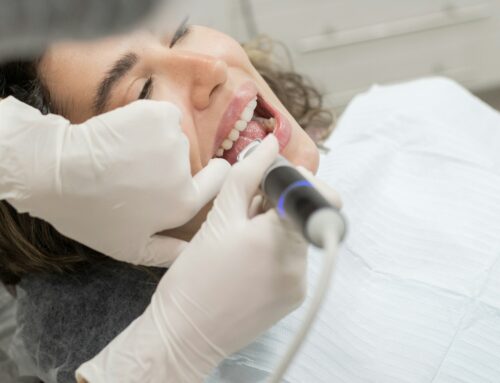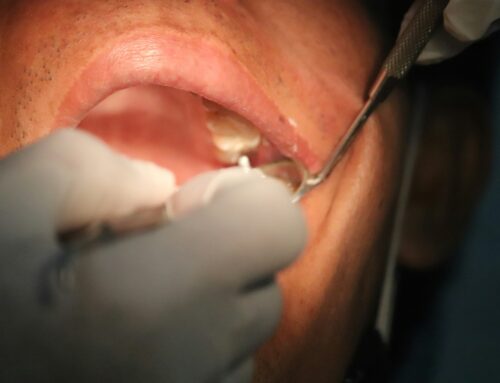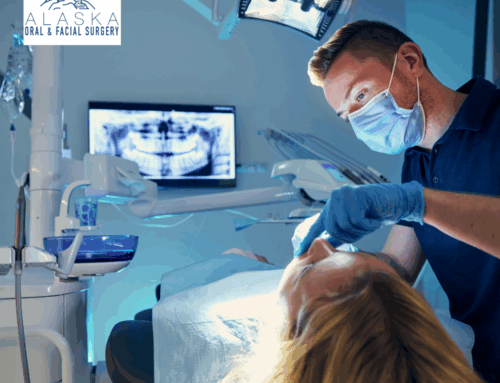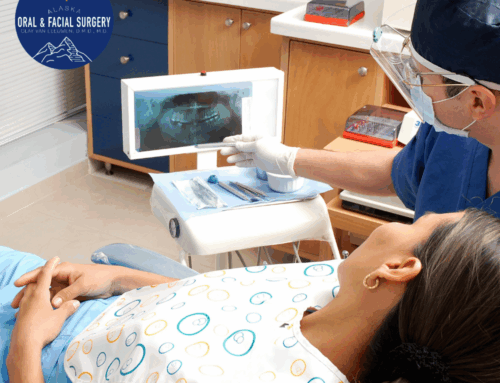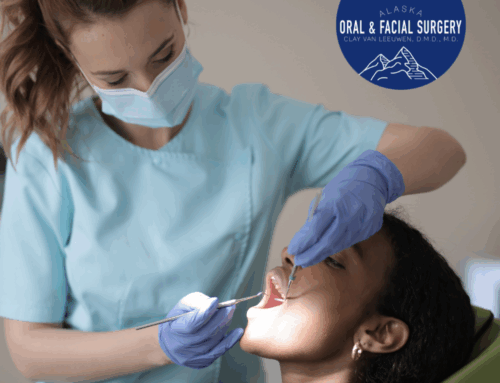Wisdom teeth, also known a s third molars, are the last set of teeth to develop in your mouth. These teeth usually emerge during the late teenage years or early adulthood. While some people never experience problems with their wisdom teeth, others may encounter issues that require careful management or even extraction. This blog post will guide you through understanding wisdom teeth, how to manage them, and what to expect during and after extraction. At Alaska Oral & Facial Surgery, we are here to help you every step of the way.
s third molars, are the last set of teeth to develop in your mouth. These teeth usually emerge during the late teenage years or early adulthood. While some people never experience problems with their wisdom teeth, others may encounter issues that require careful management or even extraction. This blog post will guide you through understanding wisdom teeth, how to manage them, and what to expect during and after extraction. At Alaska Oral & Facial Surgery, we are here to help you every step of the way.
Understanding Wisdom Teeth
What Are Wisdom Teeth?
Wisdom teeth are the third set of molars located at the back of your mouth. Most people have four wisdom teeth, two on the top and two on the bottom. These teeth typically appear between the ages of 17 and 25.
Why Are They Called Wisdom Teeth?
Wisdom teeth get their name because they emerge at a more mature age when a person is considered to be “wiser” compared to when their other teeth erupted. Historically, these teeth were useful for our ancestors who had a tougher diet and required extra molars for grinding food.
Common Issues with Wisdom Teeth
While some people have no problems with their wisdom teeth, many encounter issues such as:
- Impaction: This occurs when wisdom teeth do not have enough room to emerge properly, leading to them being trapped in the jawbone or gums.
- Crowding: As wisdom teeth try to emerge, they can push against other teeth, causing misalignment or crowding.
- Infection: Partially erupted wisdom teeth can create an opening for bacteria, leading to infections.
- Cysts: Fluid-filled sacs can form around impacted wisdom teeth, potentially causing damage to the jawbone, teeth, and nerves.
Managing Wisdom Teeth
Regular Dental Check-Ups
One of the best ways to manage wisdom teeth is through regular dental check-ups. Dentists can monitor their development and identify any potential issues early on. X-rays are often used to get a clear view of their positioning and growth.
Good Oral Hygiene
Maintaining good oral hygiene is crucial for preventing infections and other complications related to wisdom teeth. This includes brushing and flossing regularly and paying extra attention to the back of the mouth where wisdom teeth are located.
Monitoring Symptoms
Being aware of the symptoms that indicate problems with wisdom teeth can help in managing them effectively. Some common symptoms to watch for include:
- Pain or discomfort at the back of the mouth
- Swelling or redness around the gums
- Difficulty opening the mouth or chewing
- Bad breath or an unpleasant taste in the mouth
Pain Management
If you experience pain or discomfort due to wisdom teeth, over-the-counter pain relievers like ibuprofen can help alleviate the symptoms. Additionally, applying an ice pack to the affected area can reduce swelling and numb the pain.
Extracting Wisdom Teeth
When Is Extraction Necessary?
Wisdom teeth extraction may be necessary if they cause significant problems or if there is a high risk of future complications. Some common reasons for extraction include:
- Impaction causing pain or damage to nearby teeth
- Recurrent infections or gum disease
- Development of cysts or tumors
- Crowding or misalignment of other teeth
Preparing for Wisdom Teeth Extraction
Before the procedure, your oral surgeon will conduct a thorough examination, including X-rays, to assess the position and condition of your wisdom teeth. You will also be asked about your medical history and any medications you are taking.
Consultation
During the consultation, your oral surgeon will discuss the procedure, potential risks, and post-operative care. This is a good time to ask any questions you may have and address any concerns.
Pre-Surgery Instructions
You will be given specific instructions to follow before the surgery, such as:
- Avoiding food and drink for a certain period before the procedure
- Arranging for someone to drive you home after the surgery
- Stopping certain medications if instructed by your surgeon
The Extraction Procedure
Wisdom teeth extraction is typically performed as an outpatient procedure, meaning you can go home the same day. The procedure generally involves the following steps:
Anesthesia
Before the surgery begins, anesthesia is administered to ensure you are comfortable and pain-free. The type of anesthesia used can vary, including local anesthesia, sedation, or general anesthesia, depending on the complexity of the extraction and your comfort level.
Extraction Process
- Incision: If the wisdom teeth are impacted, the surgeon will make an incision in the gum to expose the tooth and bone.
- Bone Removal: Any bone blocking access to the tooth root will be removed.
- Tooth Sectioning: In some cases, the tooth may need to be divided into sections for easier removal.
- Tooth Extraction: The tooth is carefully and gently removed from its socket.
- Stitches: The incision is closed with stitches to promote healing. Some stitches dissolve on their own, while others may need to be removed at a follow-up appointment.
Post-Extraction Care
Proper post-extraction care is crucial for a smooth recovery. Here are some tips to help you heal quickly and prevent complications:
Immediate Aftercare
- Bite on Gauze: Bite gently on gauze pads placed over the extraction site to control bleeding. Change the gauze as needed.
- Rest: Take it easy for the first 24 hours and avoid strenuous activities.
- Ice Packs: Apply ice packs to the outside of your cheek to reduce swelling.
Pain Management
Over-the-counter pain relievers or prescribed medications can help manage pain and discomfort. Follow your surgeon’s instructions on dosage and frequency.
Oral Hygiene
Maintain good oral hygiene, but avoid brushing near the extraction site for the first 24 hours. After that, gently rinse your mouth with warm salt water to keep the area clean.
Diet
Stick to soft foods and liquids for the first few days. Avoid hot, spicy, or crunchy foods that can irritate the extraction site.
Avoid Certain Activities
- Smoking: Avoid smoking, as it can delay healing and increase the risk of complications.
- Straws: Do not use straws, as the sucking motion can dislodge the blood clot and cause a dry socket.
Think you may need your wisdom teeth removed? Give us a call!
Understanding, managing, and extracting wisdom teeth is crucial for maintaining good oral health. At Alaska Oral & Facial Surgery, we are dedicated to providing the highest level of care to ensure your comfort and well-being. If you are experiencing issues with your wisdom teeth or need a consultation, don’t hesitate to schedule an appointment with us. Our experienced team is here to guide you through every step of the process, from diagnosis to post-operative care.

